The written word is one of the greatest tools that humanity has. Books can change the world and they have many times over. There are books that are hundreds of years old that continue to impact our lives well into the 21st century. Without them, where would we be?
To celebrate the enduring force of the book, we have chosen eight of the most influential titles in history, fiction and nonfiction alike. We have chosen not to include religious texts, but it is worth noting that writings like the Bible and the Quran are undeniably part of this conversation for their ability to move people and spur cultural and religious changes the world over.
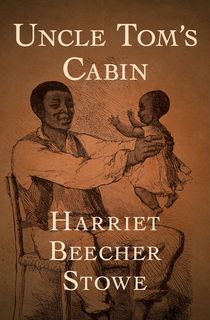
Uncle Tom's Cabin
Harriet Beecher Stowe was a staunch abolitionist who campaigned extensively for the end of slavery. Her 1852 novel Uncle Tom's Cabin was her way of revealing to her fellow white community how truly destructive and inhumane the institution of slavery was. It became the second best-selling book of the 19th century, following the Bible.
Nowadays, Uncle Tom's Cabin has a complicated legacy thanks to the harmful stereotypes of Black people that it helped to popularize. Its status as a crucial text in the anti-slavery movement has been somewhat overshadowed by its later problematic impact. Still, Stowe's work continues to be discussed today and analyzed for its influences, both positive and negative.
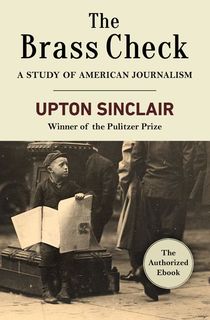
The Brass Check
Upton Sinclair wasn’t just a writer. He was a classic muckraker who used his journalistic work to expose corruption and wrongdoing in contemporary American society. With The Jungle, he revealed the unsanitary conditions in the U.S. meatpacking industry. Oil! (later turned into the film There Will Be Blood) described the dangerous labor situations of the oil industry. Yet it's The Brass Check, published in 1919, that may have made the biggest impact in the real world.
This exposé of American journalism that slammed the unethical approach to the truth and focus on salaciousness that had come to define the era's newspapers sent ripples of shock throughout the industry. Sinclair called The Brass Check "the most important and most dangerous book I have ever written." He's probably right. After its publication, the first code of ethics for journalists was created in 1923.
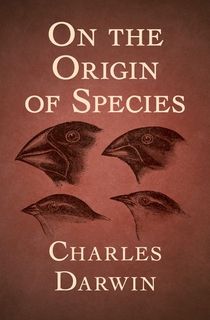
On the Origin of Species
In a world where teaching evolution is still protested in some school districts, Charles Darwin's work remains crucial. Darwin went against the powerful forces of the Church of England when he put forward his theory of evolutionary biology in 1859. The idea that all life on Earth, including humans, descended from another form and evolved through generations of natural selection was seen as blasphemy to religious schools of thought. Without this book, however, our understanding of what it means to be alive and where we came from would be very different. In a survey conducted by a group of academic booksellers, publishers, and librarians in advance of Academic Book Week in the United Kingdom, On the Origin of Species was voted the most influential academic book ever written.
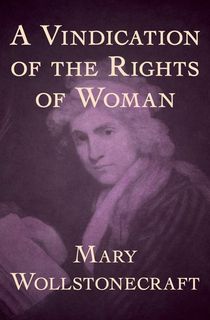
A Vindication of the Rights of Woman
Written in 1792, A Vindication of the Rights of Woman: with Strictures on Political and Moral Subjects is one of the earliest works of feminist philosophy. Mary Wollstonecraft wrote her treatise in response to male theorists who believed that women did not have the right nor inclination to receive an academic education. While there are many elements of the book that make it tough to read Wollstonecraft as a modern feminist—she doesn't go as far as to explicitly state that men and women are equal, for one—it's undeniable that her work laid the groundwork for generations of advocates for gender liberation and the right of women to receive an education beyond the domestic sphere. The suffrage movement of the 1800s relied heavily on Wollstonecraft's writings for inspiration in their campaigning.

The Feminine Mystique
Following the Second World War, many women were forced out of the workplace and back into the kitchen. Life as a mother and housewife was the expected and demanded endgame for generations of girls. In 1963, Betty Friedan's The Feminine Mystique helped to change that. A major bestseller upon release, Freidan's study challenged the assumption that "fulfilment as a woman had only one definition for American women after 1949—the housewife-mother." She helped to give voice to an ignored and disenfranchised generation that would go on to define the post-war feminist movement. The Feminine Mystique not only introduced feminism to an entire generation of women, but helped make it a crucial and practical element of their lives.
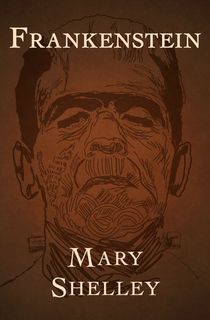
Frankenstein
If it wasn’t for an 18-year-old girl sharing spooky stories with her friends one rainy summer, we wouldn’t have science fiction as we know it. Mary Shelley’s Frankenstein paved the way for one of the most popular cultural genres, and her eerie novel has retained its power all these centuries later.
The eponymous Dr. Frankenstein becomes obsessed with creating life, but when he finally does so, he is horrified by his hideous creation. He rejects "the Creature", who tries to figure out his place in a world that was never meant for him. Without Frankenstein, the history of sci-fi and literature as a whole would be radically different. The book's existential quandaries feel especially relevant as technology and scientific advancements move ever-closer to making Shelley’s fiction a reality.

Ain't I a Woman? Black Women and Feminism
The death of bell hooks in December 2021 was a major loss for the world. Her radical and pioneering analyses changed the way we think about the intersections of racism and sexism and their effects on Black women. Ain't I A Woman, published in 1981, takes the inspiration for its title from Sojourner Truth's "Ain't I a Woman?" speech. In it, hooks argues that the dual forces of misogyny and racism over the centuries contributed to Black women having the lowest status and worst conditions of any group in American society.
As the feminist movement gained major traction and mainstream appeal in the '80s, hooks offered a much-needed reminder that such communities were filled with largely white and middle-class advocates who did not prioritize the women who need feminist liberation the most. Her sharply argued and accessible book remains crucial to the feminist conversation of the 2020s.

1984
No dystopian novel has made an impact on our modern consciousness as thoroughly as George Orwell's cautionary tale 1984. Inspired by the totalitarian regimes of Stalinist Russia and Nazi Germany, Orwell crafted a hellish future dominated by mass surveillance, a cult of personality, and contradictory propaganda that demanded the total erasure of individuality. So much of what makes 1984 a petrifying read is its eerie prescience. You can draw far too many parallels between the novel and real-life instances of political oppression. Even the book's language has permeated our everyday speech: Big Brother, Thought Police, Newspeak, Room 101, and so on. Alas, 1984 is a novel that will never stop being relevant.
Related: Explore New Angles of WWII with 13 Novels That Focus on Untold Stories



